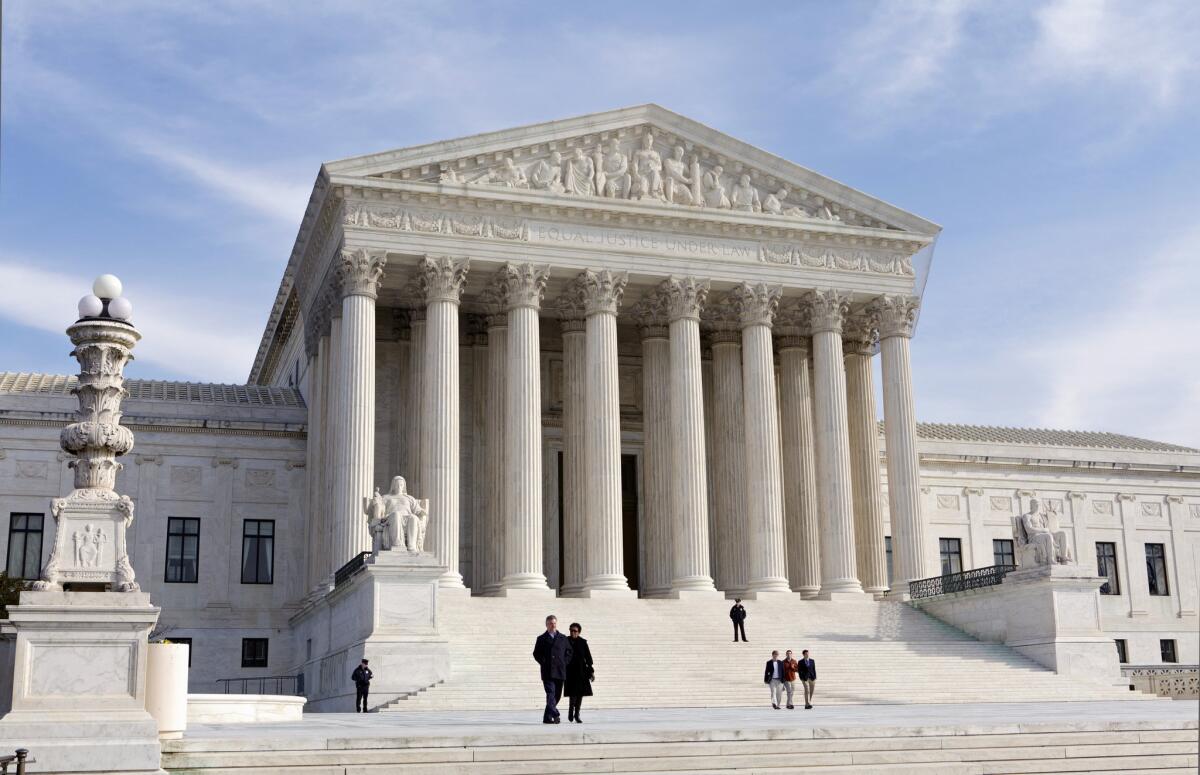High court narrows obstruction of justice definition under ‘Enron law’

The Supreme Court narrowed the definition of obstruction of justice under the so-called Enron law and did so Wednesday by freeing a Florida fishing boat captain from charges that he secretly tossed overboard dozens of undersized red grouper to avoid prosecution.
John Yates, the captain, was fishing in the Gulf of Mexico when a federal agent spotted him and his men reeling in grouper that were less than 20 inches long. The agent boarded the boat, counted 72 fish that were under the legal limit, and told the captain to return to port.
But when they got there, the agent found only three fish that were clearly below the limit. After questioning the others on board, the agent concluded Yates had ordered the undersized fish to be tossed overboard.
Prosecutors charged the captain with several crimes, including obstruction of justice under the Sarbanes-Oxley Act. That law, passed in the wake of the Enron scandal makes it a crime to hide, shred or destroy “any record, document or tangible object” to thwart a federal investigation.
Yates was convicted and given a 30-day sentence. But his case drew wide attention. Critics saw the case as a classic example of overzealous federal prosecutors stretching the law.
Others portrayed it as a problem fit for a law school class: Should the law in this instance turn on Congress’ intent to prevent the shredding of documents or, instead, on the meaning of “tangible object.”
The justices split 5-4.
Justice Ruth Bader Ginsburg said the law should turn on what Congress intended.
“Mindful that in Sarbanes-Oxley, Congress trained its attention on corporate and accounting deception and cover-ups, we conclude that a matching construction [of the key phrase] is in order: A tangible object, we hold, must be one used to record or preserve information,” she wrote. “We agree with Yates.”
The obstruction law does not extend to “any and every object found on land and sea,” she said. Chief Justice John G. Roberts and Justices Stephen G. Breyer and Sonia Sotomayor agreed.
Justice Samuel Alito concurred in his own opinion. He said words in the law should make sense together. “Who wouldn’t raise an eyebrow if a neighbor, when asked to identify something similar to a ‘record’ or ‘document,’ said ‘crocodile?’” he asked.
Justice Elena Kagan dissented and said both Ginsburg and Alito were wrong. Congress meant to make it illegal to hide evidence.
“A person who hides a murder victim’s body is no less culpable than one who burns the victim’s diary. A fisherman, like John Yates, who dumps undersized fish to avoid a fine is no less blameworthy than one who shreds his vessel’s catch log for the same reason,” she wrote.
“Whatever the reason or folly” of the way the law was written, she wrote, “we are not entitled to replace the statute Congress enacted with an alternative of our own design.”
Justices Antonin Scalia, Anthony M. Kennedy and Clarence Thomas joined Kagan’s dissent.







